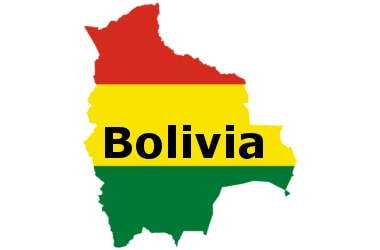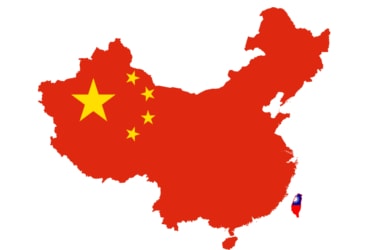International Economy - Current Affairs for July, 2017
International Economy Current Affairs for July, 2017
Month wise coverage of International Economy Current Affairs helps you improve your general knowledge and prepare for all competitive exams like IBPS, Bank PO, SBI PO, RRB, RBI, LIC, Specialist Officer, Clerk, SSC, UPSC, Railway etc. This section is updated daily with the most important events.Preparing International Economy Current Affairs July, 2017
1. Read the most important International Economy Current affairs and facts here. 2. Take practice test of our International Economy MCQ and Objective type questions. 3. Clear any quiz, GK, job interview or competitive exam on current affairs.
- Month & Year
▼ Bolivia joins MERCOSUR, Morales declares independence from IMF, WB [07-27-17]
 Bolivia’s President Eva Morales declared on twitter that his nation has achieved “total independence” from the IMF and the World Bank Bolivia’s President Eva Morales declared on twitter that his nation has achieved “total independence” from the IMF and the World Bank
The socialist leader published his comments after meeting with his peers Friday at a gathering in Argentina of the Mercosur, a sub-regional economic bloc.
Bolivia begins its process of becoming a full member of the Mercosur, also called the Southern Common Market, which includes Argentina, Brazil, Paraguay, Uruguay, and Venezuela.
Until now Bolivia has served as an associate member along with Chile, Columbia, Ecuador, Guyana, Peru, Suriname.
Also on Friday, President Morales accused world powers of intervening in oil rich nations such as Libya, Iraq, and Venezuela to “appropriate resources”.
Historically, Bolivia has relied heavily on the IMF for loans to fund their socialist government expenditures.
President Morales has even previously quipped that his nations past dependence on the agencies was so great that the IMF had an office in government headquarters and even participated in their meetings.
President Morales become Bolivia’s first indigenous leader in 2006, and gained popularity after the nations popular uprising known as “The Cochabamba Water War”, which occurred in 2000, and was waged against the U.S.-based Bechtel Corporation over water privatization.
The World Bank at the time, which was closely associated with the Bechtel Corporation, shed light on the growing debt issues facing the country through policy publications.
According to a report from teleSUR, some of Bolivia’s largest resistance struggles in the last 60 years have targeted the economic policies carried out by the IMF and the World Bank.
|
▼ Chinese economy expands in Q2 2017 [07-18-17]
 China's economy expanded faster-than-expected in the second quarter, setting the country on course to comfortably meet its 2017 growth target. China's economy expanded faster-than-expected in the second quarter, setting the country on course to comfortably meet its 2017 growth target.
This is also giving policymakers room to tackle big economic challenges ahead of key leadership changes later this year.
The boost to growth was in part driven by firmer exports and production, in particular steel, which could heighten trade tensions as the United States and China begin economic talks this week.
US President Donald Trump has made the US trade deficit with China a top agenda item in bilateral talks and has also flagged the steel trade as a point of contention.
China's gross domestic product rose 6.9 per cent in the second quarter from a year earlier, the same rate as the first quarter, the National Bureau of Statistics said on 17th July 2017.
That was higher than analysts' expectations of a 6.8 per cent expansion.
Economic data from the second quarter has prompted a number of analysts to upgrade their GDP forecasts for China for 2017.
Some moderation in growth is expected later this year as policymakers' efforts to rein in property and debt risks weigh on activity.
GDP growth will remain robust in the second half but slower than the first half, due to the high base.
The robust numbers kept world shares near a record high and briefly helped China's major stock indexes recoup earlier losses.
The second quarter numbers put the economy on a strong footing to meet China's growth target of around 6.5 per cent in 2017, which would give policymakers room to defuse financial risks.
While growth in the high-flying property sector has cooled this year, a rebound in exports after several years of decline has helped prevent any broader slowdown in China's economy.
Retail spending and factory output were also bright spots in the first half. Retail sales growth picked up to 10.8 per cent in the second quarter from 10.0 per cent in the first quarter, a Reuters calculation based on official data showed.
Factory output also picked up in the second quarter, though the 6.9 per cent growth for the first half was only a slight pickup from recent quarters.
|